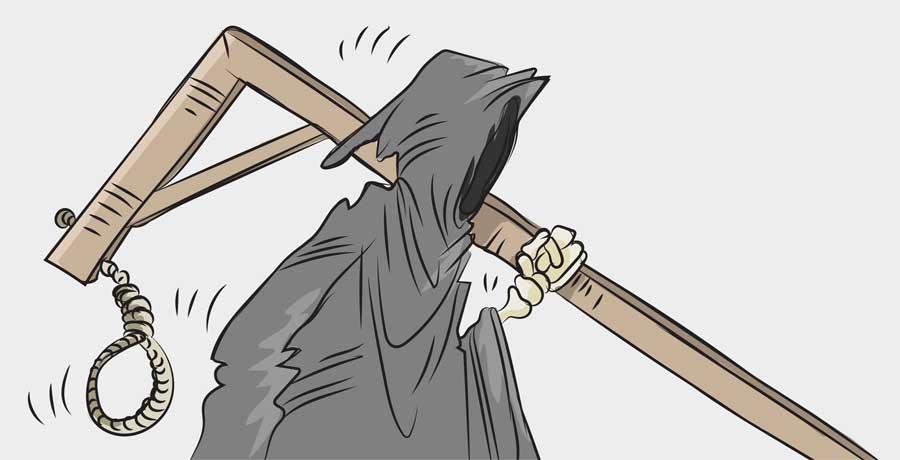Reply To:
Name - Reply Comment

Sri Lanka is a strange country when its comes to the application of the law. Just the other day we heared of the news that a person convicted of murder was sentenced to death by the Presiding Judge at the Tangalle High Court. The news of the verdict largely received the attention of the print media because the judge disregarded the norms practised in the court when reading out a death sentence.
Generally a death sentence in Sri Lanka is automatically transferred to a life imprisonment given that this is a Buddhist country and those practising Gautama Buddha’s teachings strictly adhere to the commandment of ‘not taking another’s life’.
But Rajapakselage Lal Ranjan was sentenced to death after being found guilty of being involved in the killing of Subesinghe Kattadige Saindara in 2006.
Critics opine that Sri Lanka should bring in stricter laws to curb crimes, rape and the drug trade. But on the other hand there is uncertainty about how the law applies in Sri Lanka. This was because a presidential pardon was given to a convict just after the last Presidential Election. Following an order by the Executive President a former Staff Sergeant of the Sri Lanka Army was offered a pardon despite being sentenced to death for the murder of eight civilians; in Murusuvil, Jaffna.
The latest individual to be sentenced will spend an anxious wait because the country’s law specifies that the judge’s verdict will be decreed only after it is authorised by the Attorney General and the Minister of Justice and ratified by the Executive President.
Sri Lanka has fought shy when it comes to implementing the death penalty; largely because of public outcry and the clout held by the saffron robed monks who preach against killing of any form. But Sri Lanka was nowhere near being a peaceful nation for 26 long years and finally chose the gun and the ruthless elimination of tiger rebels and JVP insurgents when these two groups initiated an aggressive and brutal struggle to pressurise the regime and win their demands. Even in the 2600 year history of the nation there have been wars, blood shed, executions and the deportation of those guilty of treason. Hence there were rulers who thought that people who threatened the peace in the island through unpardonable deeds had to be eliminated.
The Judge, R.A S Sapuvida, who delivered the verdict regarding the execution, had not followed etiquette when reading out his judgement in the case where Rajapakselage Lal Ranjan stood accused of murder. He had maintained that following etiquette when reading out a death sentence would not serve a purpose if the verdict for a death sentence was not carried out. The Judge had also pointed out that the death sentence on the convict in the murder of High Court Judge Sarath Ambepitiya was not carried out.
Sri Lanka seems to experience a block when trying to discipline the nation by reinforcing capital punishment. Former President Maithripala Sirisena tried to use this provision given by the law to curb the drug trade. During the tenure of President Sirisena there were 436 people on death row.
As many as 105 countries have abolished the death penalty. However 35 countries, including Sri Lanka, have retained the death penalty, but not implemented it for years. Sri Lanka has placed a meratorium on capital punishment since 1976.
Judge Sapuvida through his verdict gave Sri Lanka’s lawmakers a strong reminder that the country needs stricter laws and most importantly the message that its citizens must be law abiding.
Death will be eventually encountered by man one day and life need not be snuffed out on the gallows. Finally when death comes the most common natural cause for it is ‘respiratory failure’. Celebrated author Ernest Hemingway penned many thoughts about death and this one is one of the most quoted ones: ‘Every man’s life ends the same way. It is only the details of how he lived and how he died that distinguish one man from another’.